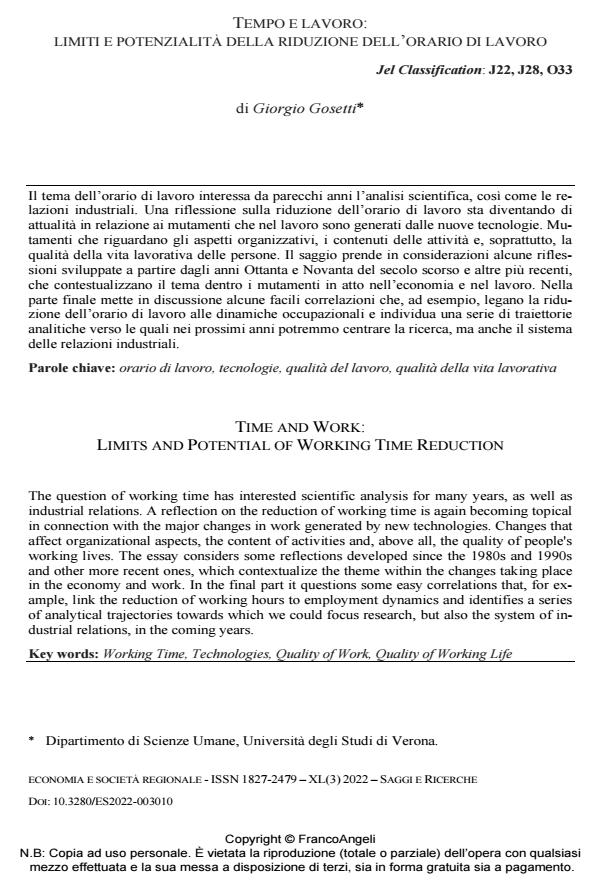Time and work: limits and potential of working time reduction
Journal title ECONOMIA E SOCIETÀ REGIONALE
Author/s Giorgio Gosetti
Publishing Year 2022 Issue 2022/3
Language Italian Pages 19 P. 117-135 File size 282 KB
DOI 10.3280/ES2022-003010
DOI is like a bar code for intellectual property: to have more infomation
click here
Below, you can see the article first page
If you want to buy this article in PDF format, you can do it, following the instructions to buy download credits

FrancoAngeli is member of Publishers International Linking Association, Inc (PILA), a not-for-profit association which run the CrossRef service enabling links to and from online scholarly content.
The question of working time has interested scientific analysis for many years, as well as in-dustrial relations. A reflection on the reduction of working time is again becoming topical in connection with the major changes in work generated by new technologies. Changes that af-fect organizational aspects, the content of activities and, above all, the quality of people's working lives. The essay considers some reflections developed since the 1980s and 1990s and other more recent ones, which contextualize the theme within the changes taking place in the economy and work. In the final part it questions some easy correlations that, for example, link the reduction of working hours to employment dynamics and identifies a series of analyt-ical trajectories towards which we could focus research, but also the system of industrial rela-tions, in the coming years.
Keywords: Working Time, Technologies, Quality of Work, Quality of Working Life
Giorgio Gosetti, Tempo e lavoro: limiti e potenzialità della riduzione dell’orario di lavoro in "ECONOMIA E SOCIETÀ REGIONALE " 3/2022, pp 117-135, DOI: 10.3280/ES2022-003010